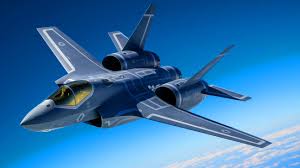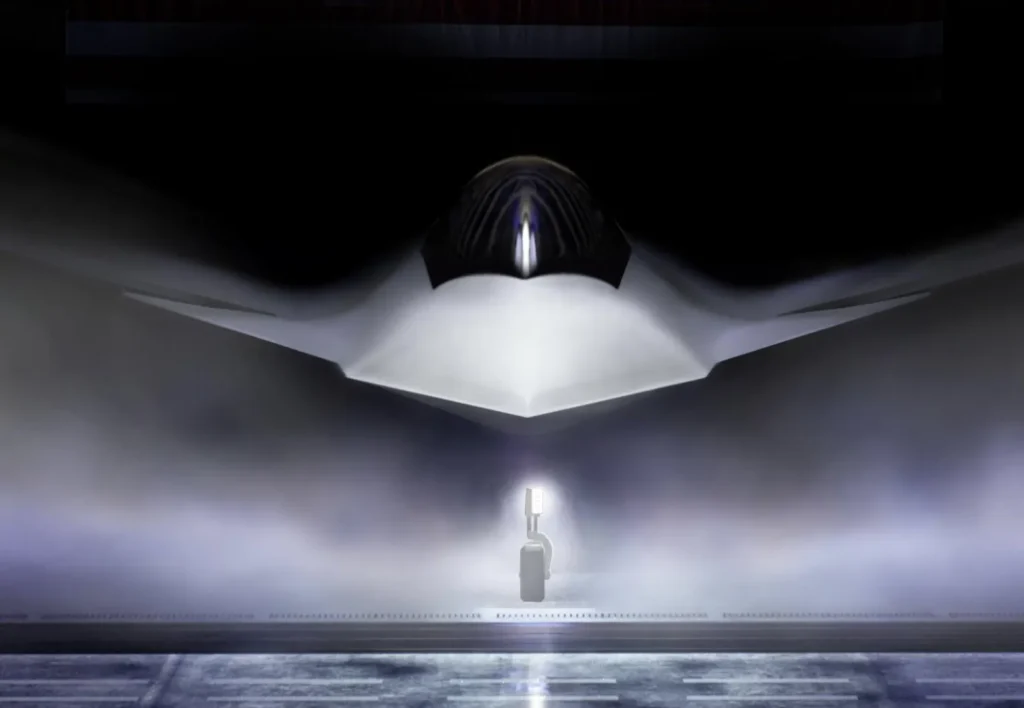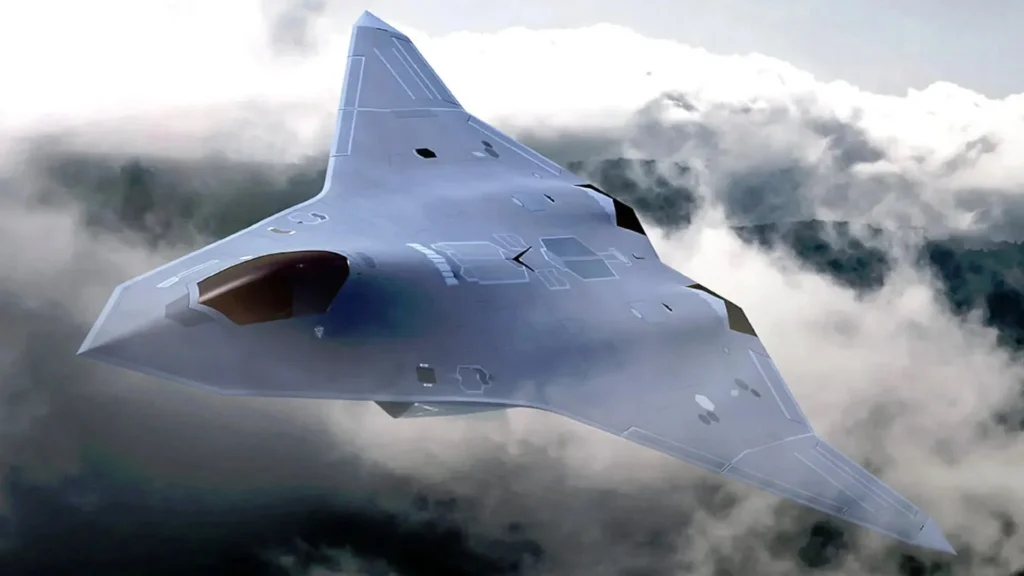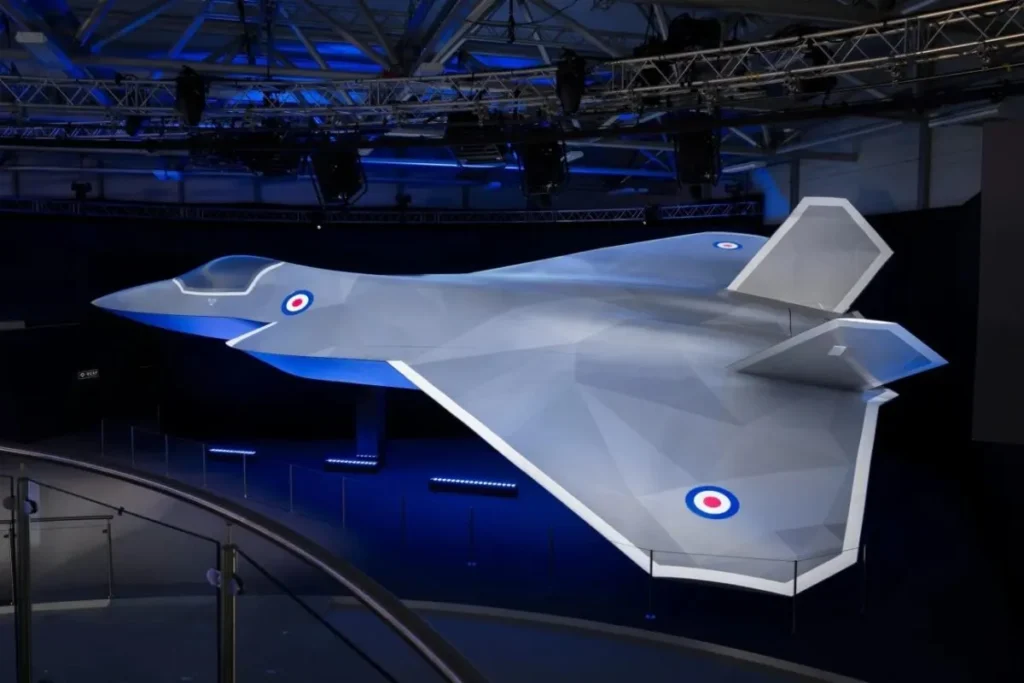In a bold move to secure its strategic advantage in the Middle East, Israel is reportedly turning its attention to the development and acquisition of the futuristic sixth-generation F-47 fighter jet. As neighboring powers like the UAE and Turkey look to strengthen their aerial fleets with fifth-generation F-35s, Israel is setting its sights even higher — determined to stay one step ahead in a region where air dominance is not just important, but essential for national survival.
This signals more than just an upgrade in hardware. It’s a symbolic and strategic declaration that Israel is preparing for the next era of aerial combat, where artificial intelligence, stealth, and unmanned systems redefine the very nature of warfare.
Staying Ahead in a Competitive Region

The Middle East is no stranger to rising military aspirations. The increasing interest from Turkey and the United Arab Emirates in the American-made F-35, a fifth-generation stealth aircraft, has reshuffled the regional defense calculus. While Israel was the first in the region to acquire and operationalize the F-35, the playing field is evolving.
The possibility of regional rivals eventually acquiring similar airpower tools means Israel can no longer rely solely on its existing fleet to maintain an overwhelming edge. That’s where the F-47 enters the conversation — a highly advanced sixth-generation aircraft that promises unprecedented capabilities far beyond what the F-35 offers today.


In essence, this is about future-proofing Israel’s defense forces in a neighborhood where security threats are dynamic and air superiority is vital to deterrence and survival.
What the F-47 Could Mean for Israel
Though the F-47 is still in the development pipeline, expected to be part of a joint program among key Western allies, early reports suggest it will represent a generational leap in combat aviation. The jet is likely to feature:
- Unmatched Stealth capabilities that surpass existing technologies
- Human-machine teaming, allowing a pilot to command unmanned drones in real-time
- Artificial Intelligence-driven combat support that predicts threats and automates decisions
- Hypersonic speeds and enhanced maneuverability
- Full-spectrum electronic warfare capabilities, making it nearly invisible to enemy radar
For Israel, these features could be a game-changer. It’s not just about winning dogfights in the sky — it’s about transforming the very nature of military operations, with integrated air, cyber, and space capabilities working as one.
Why Israel Can’t Afford to Wait
With regional players showing increased ambitions, time is of the essence. Israel’s military doctrine is built around early detection and swift, decisive action. The introduction of advanced air capabilities in the hands of potential adversaries — even if they are current diplomatic allies — poses long-term strategic concerns.
Turkey has already voiced renewed interest in expanding its air fleet, and the UAE, which recently normalized relations with Israel, is actively pursuing its own path to defense modernization. While peace agreements create positive momentum, defense strategies often look decades ahead. What is friendly today may not be friendly tomorrow in a region as fluid as the Middle East.

By looking toward the F-47, Israel is investing in tomorrow’s battlefield today — not out of paranoia, but prudence.
The US-Israel Defense Partnership and the F-47 Vision
One of Israel’s greatest strengths lies in its close defense relationship with the United States. The two nations have historically collaborated on game-changing defense technologies, including the Iron Dome missile system and cutting-edge cybersecurity initiatives. The pursuit of the F-47 could become the next milestone in this collaboration.
Reports suggest that the US may involve trusted allies like Israel in the F-47 program at a strategic level, not just as a buyer but potentially as a technological contributor. This could allow Israel to shape features tailored to its unique battlefield needs — especially in areas like AI-based threat detection, adaptive camouflage, and drone integration.
Such collaboration would ensure that Israel doesn’t just buy the future — it helps build it.
The F-35 vs F-47: A Leap, Not Just a Step
While the F-35 was a revolutionary aircraft when it entered service, the F-47 promises a quantum leap in combat capability. Comparing the two is like comparing a smartphone to an AI-powered supercomputer. The F-47 isn’t just about better performance; it’s about reimagining what a fighter jet can do in an age of autonomous warfare.
For Israel, transitioning from the F-35 to a sixth-generation platform means rethinking air combat strategy altogether. Missions that once required squadrons may now be executed by a single F-47 supported by a swarm of autonomous drones. The ability to operate in contested or denied environments — where radar, GPS, and satellite communication may be compromised — will give Israeli forces a new layer of resilience.
Public Support and National Security Vision
Israel’s population, accustomed to high-stakes defense discussions, is likely to back such a visionary move. The nation has always relied on its technological edge to survive and thrive. Whether it’s missile defense, surveillance, or cyber warfare, innovation is part of Israel’s national identity.

The F-47 could become another symbol of Israeli ingenuity, combining global collaboration with homegrown innovation. If the project materializes, it could also fuel economic growth in Israel’s booming defense and aerospace sectors, creating jobs and driving R&D.
A Strategic Message to the Region and the World
By aligning itself with sixth-generation technology, Israel is sending a message far beyond its borders. This isn’t about provocation — it’s about preparation. The move underscores Israel’s intent to remain a technological and military trailblazer in a region where unpredictability is the only constant.
In practical terms, the F-47 could enhance Israel’s deterrence posture not just against state actors but also asymmetric threats. From rogue drone attacks to advanced missile systems, the next generation of challenges requires next-generation responses.
And Israel, as always, is choosing to meet those challenges head-on — not with fear, but with foresight.
Looking Ahead: The Road to 2040 and Beyond
While the F-47 is still in the conceptual or early design phase, its significance is already reshaping defense conversations. For Israel, the journey toward acquiring or co-developing this advanced aircraft won’t be immediate. It may take years of negotiation, investment, and strategic alignment.

But that’s exactly the point. Israel doesn’t plan for next year — it plans for the next generation. The move to explore the F-47 now is about shaping the battlefields of 2040 and beyond.
As the world watches and regional powers rise, Israel is preparing not just to adapt, but to lead. With eyes set firmly on the future, the F-47 may just become the next icon in Israel’s storied defense legacy — a silent but powerful guardian of the skies.
And perhaps, a symbol of how forward-thinking leadership still makes all the difference when security, sovereignty, and innovation are on the line.
Do follow UAE Stories on Instagram
Over 150 Indian Investors to Attend UAE Investment Summit on Aug 2















